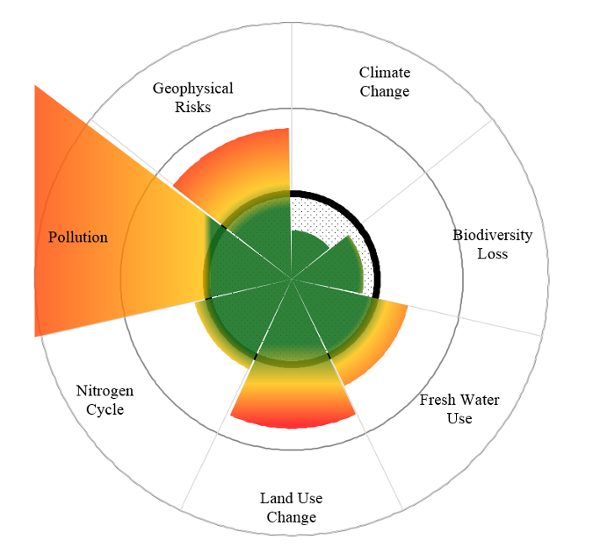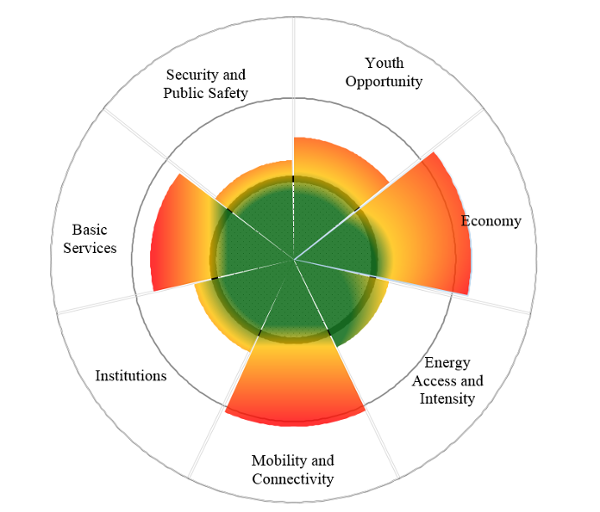Mumbai
Mumbai is India’s largest metro area and its air quality is as poor as Shanghai’s. Mumbai also has disproportionately high impacts on biodiversity loss, fresh water use and land use change. Figure 1 and Table 1 show the city’s status compared to global average.

Figure 1: Physical Science: Mumbai vs. Global Condition
Comparing Toronto, Shanghai and Sao Paulo with Mumbai and Dakar, the significant need for improved economy, youth opportunity and mobility and connectivity is evident. Mumbai also lags in providing basic services such as waste collection and improved sanitation. Figure 2 and Table 2 provide Mumbai’s socio-economic sustainability status.

Figure 2: Socio-economic: Mumbai vs. Global Condition